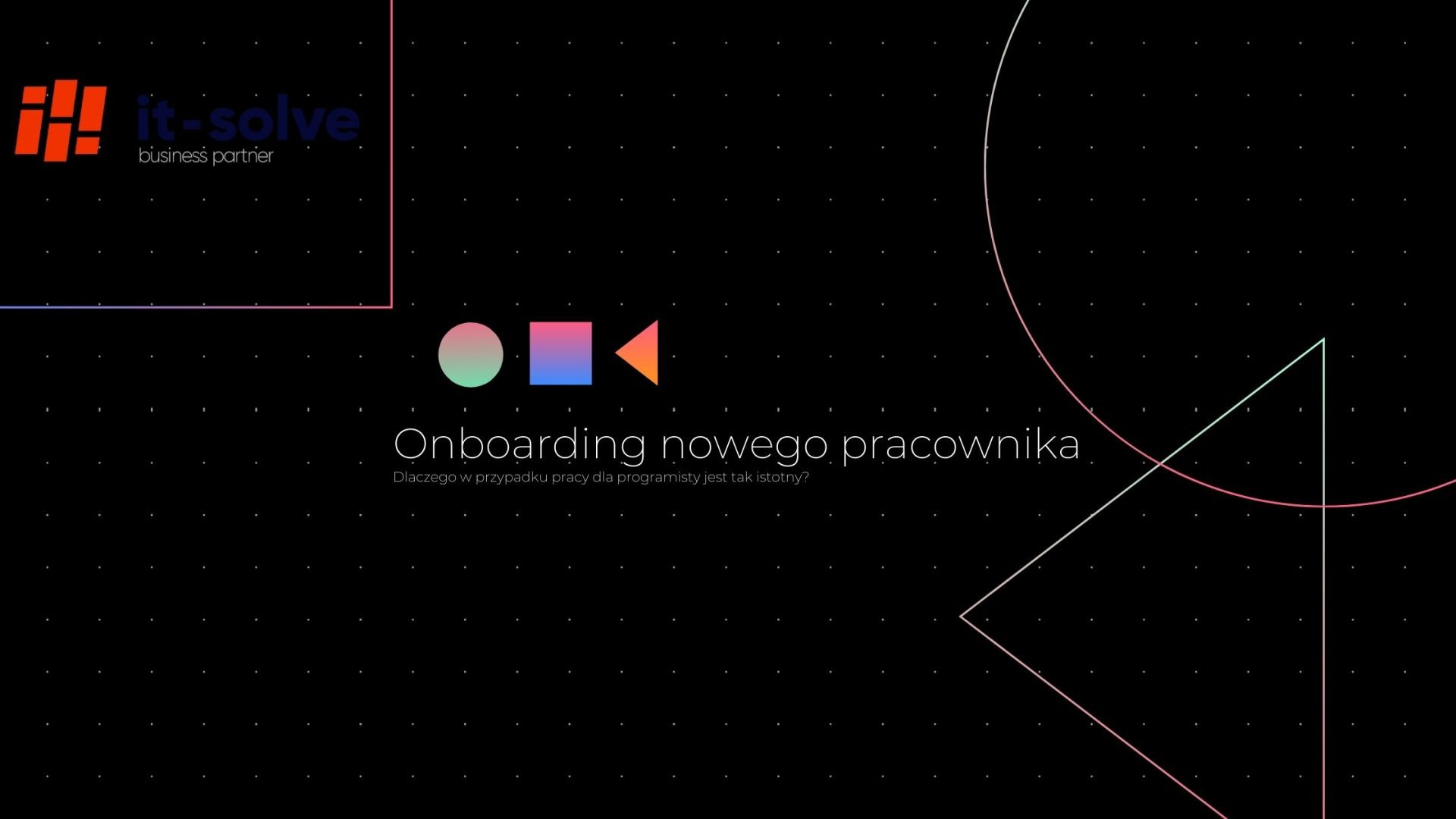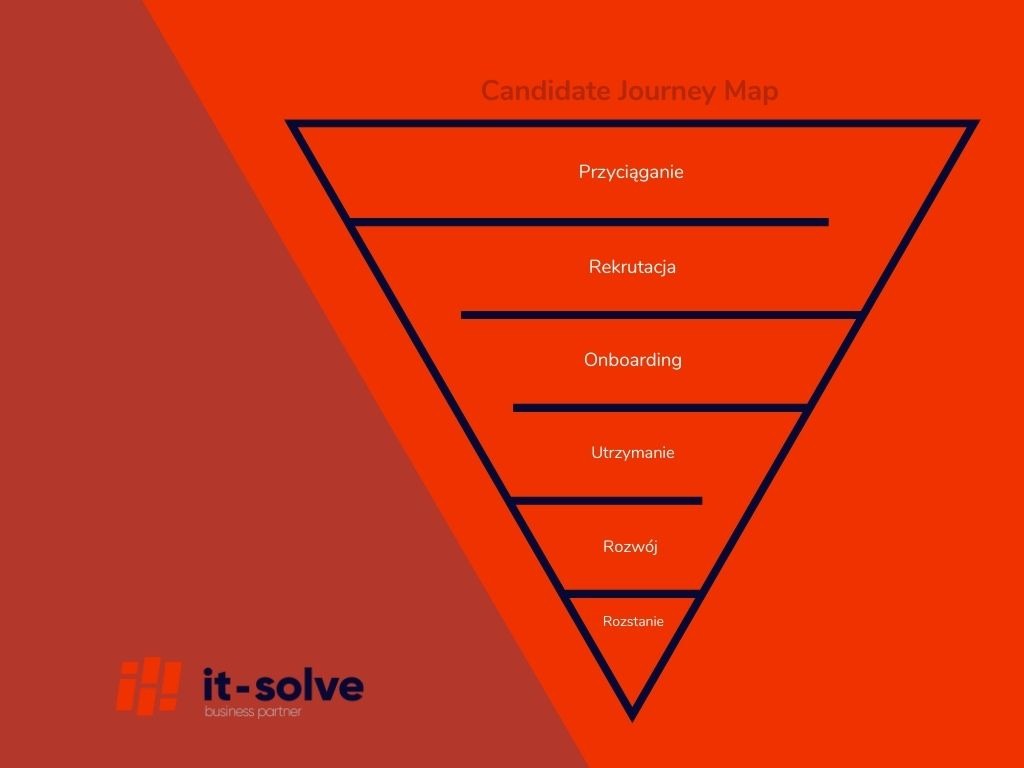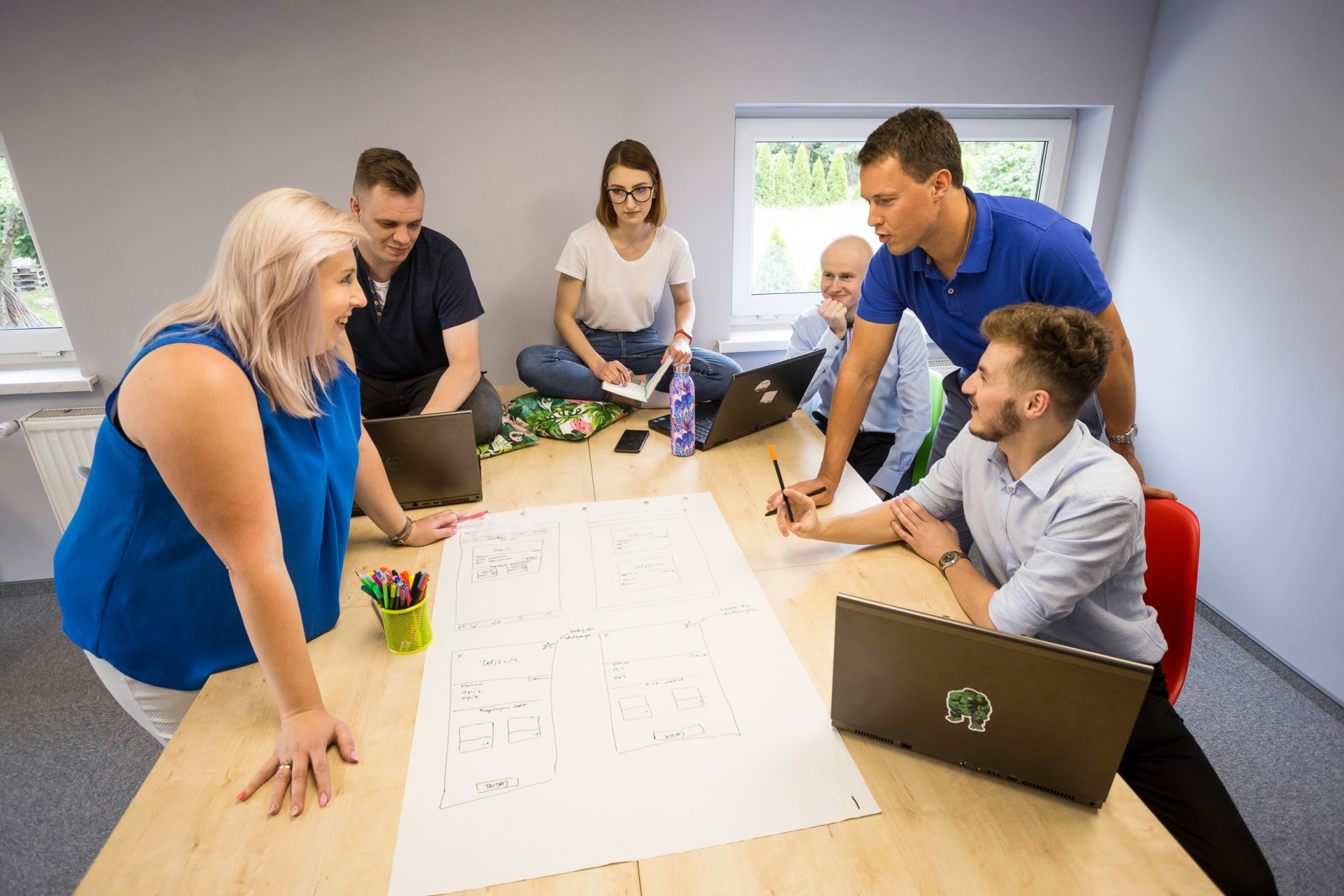
Onboarding is a process that exists in every organization yet it still stirs up a lot of emotion. What is the reason for this? Bad onboarding can do a lot of damage to a company, while a well-organized process that is tailored to the needs of employees provides tangible benefits that translate into improved employer experience and direct support for the company's business processes.
Onboarding - what exactly is it?
There are many definitions of the term "onboarding" in recruitment terms. In the simplest terms, it is the process of adaptation of the employee from the moment of his acceptance of the offer, until he achieves independence in the area of tasks performed. What is important, a well-planned process starts at the very beginning of the recruitment process and ends when the employee is retained.
.
A popular tool used in recruitment planning is also the candidate (human) journey map - this is a map of candidate and employee experience, which includes all points of contact between the person and the company. It consists of several topics such as: attraction, recruitment, onboarding, retention, development and separation. Considering how high onboarding is in the employee experience pyramid, as well as the growing number of social media hashtags #onboarding, #firstdayatwork, good onboarding simply pays off, as this process also has great potential to support employer branding activities within the company.

Stages of onboarding
.
The onboarding process will vary from company to company, or even from position to position. However, we can distinguish its several stages, which usually remain the same, and differ in their duration:
- pre-onboarding
- induction day
- immersion
- evaluation
.
.
.
Pre-onboarding
.

This is a very often overlooked, while crucial for the whole stage processes. Pre-onboarding starts when a candidate accepts our offer and ends on the first day of work. Why is this moment crucial? Because the risk that the candidate who has accepted the conditions, but decides not to join the team is the greatest then. At the moment of accepting the job offer, the candidate is determined to change - he/she has potentially already finished the negotiation stage with the current employer, and his/her attachment to the current workplace is waning. Unfortunately, the key moment is when the candidate is not yet committed to the new job, but is saying goodbye to the current one - this is when they are most open to other offers and simply seeing if the market can offer them something more. So what can a new employer do to keep an employee engaged until the "physical" start of a new job?
- Confirm the offer - by email, letter - this gives the employee a guarantee that all conditions have been agreed and are unchangeable.
- Keep in touch with the candidate during their notice period at their current company - ideally, you should occasionally make contact with the new employee - send them an inspirational article or simply reassure them that the company is looking forward to them joining the team.
- Help them go through the formalities associated with changing jobs - regular information about changing insurance, taking employee tests, etc. allows for a stress-free change of employment.
- Provide all necessary information on the first day at the new job - this includes providing the employee with information on the daily schedule, dress code, parking location, meals, etc.
Introduction day
.
Which is the first day of a new job, but sometimes it is stretched to a week or more. This is the moment to be associated with a lot of uncertainty for the new employee. Well-planned pre-onboarding significantly improves the first day, because the new employee simply knows what to expect.
How best to plan a new employee's first day on the job?
- Choose a good presenter for the first day - it is worth appointing to this role a person who feels comfortable presenting in public and simply has a passion for his/her work.
- Dose the knowledge appropriately - remember that the human brain has limited cognitive resources, so it is unrealistic to expect that in the first 8 hours of work a new employee will remember all the information about the company
- Theory in combination with practice - it is good to incorporate tasks aimed at integration of team into the first day, then the day becomes varied, and it often allows to break the first cognitive barriers
.
.
.

Immersion
.
This is the time until the employee becomes completely independent. In some companies it is set for 3 months, in others this period may be longer/shorter - however it is often misidentified with the probationary period. In practice, however, the trial period is not synonymous with the employee becoming completely independent - everything depends on the role in the company and previous experience. What activities are effective at this stage?
- Administrative and logistical security, i.e. fulfilling all the basics to allow you to perform your duties as well as possible
- Appointment of a mentor role i.e. a dedicated person to support the new person in his/her daily work.
.
.
Evaluation
.
Evaluation of the employee is the stage that ends the process of adapting to the new workplace - it allows both parties to verify expectations against the actual state. It allows both parties to verify their expectations in relation to the actual state of affairs. It is then that an assessment is made of what worked and what did not work. What is important, during the evaluation stage, it is not only the company that evaluates the adaptation of the employee and the effectiveness of the onboarding process, but very important here is the employee's assessment of the company - it can be conducted in the form of a conversation or a survey.
Summary
.
As you can see from the above article, employee onboarding is an element that every good employer must remember and plan well. Especially on demanding IT market, where it is getting harder and harder to find a new employee with experience, well-planned processes may be what will attract new candidates.
If you have questions about the onboarding process, or would like to participate in our recruitments - don't wait and write from us today.

Onboarding is a process that exists in every organization yet it still stirs up a lot of emotion. What is the reason for this? Bad onboarding can do a lot of damage to a company, while a well-organized process that is tailored to the needs of employees provides tangible benefits that translate into improved employer experience and direct support for the company's business processes.
Onboarding - what exactly is it?
There are many definitions of the term "onboarding" in recruitment terms. In the simplest terms, it is the process of adaptation of the employee from the moment of his acceptance of the offer, until he achieves independence in the area of tasks performed. What is important, a well-planned process starts at the very beginning of the recruitment process and ends when the employee is retained.
.
A popular tool used in recruitment planning is also the candidate (human) journey map - this is a map of candidate and employee experience, which includes all points of contact between the person and the company. It consists of several topics such as: attraction, recruitment, onboarding, retention, development and separation. Considering how high onboarding is in the employee experience pyramid, as well as the growing number of social media hashtags #onboarding, #firstdayatwork, good onboarding simply pays off, as this process also has great potential to support employer branding activities within the company.

Stages of onboarding
.
The onboarding process will vary from company to company, or even from position to position. However, we can distinguish its several stages, which usually remain the same, and differ in their duration:
- pre-onboarding
- induction day
- immersion
- evaluation
.
.
.
Pre-onboarding
.

This is a very often overlooked, while crucial for the whole stage processes. Pre-onboarding starts when a candidate accepts our offer and ends on the first day of work. Why is this moment crucial? Because the risk that the candidate who has accepted the conditions, but decides not to join the team is the greatest then. At the moment of accepting the job offer, the candidate is determined to change - he/she has potentially already finished the negotiation stage with the current employer, and his/her attachment to the current workplace is waning. Unfortunately, the key moment is when the candidate is not yet committed to the new job, but is saying goodbye to the current one - this is when they are most open to other offers and simply seeing if the market can offer them something more. So what can a new employer do to keep an employee engaged until the "physical" start of a new job?
- Confirm the offer - by email, letter - this gives the employee a guarantee that all conditions have been agreed and are unchangeable.
- Keep in touch with the candidate during their notice period at their current company - ideally, you should occasionally make contact with the new employee - send them an inspirational article or simply reassure them that the company is looking forward to them joining the team.
- Help them go through the formalities associated with changing jobs - regular information about changing insurance, taking employee tests, etc. allows for a stress-free change of employment.
- Provide all necessary information on the first day at the new job - this includes providing the employee with information on the daily schedule, dress code, parking location, meals, etc.
Introduction day
.
Which is the first day of a new job, but sometimes it is stretched to a week or more. This is the moment to be associated with a lot of uncertainty for the new employee. Well-planned pre-onboarding significantly improves the first day, because the new employee simply knows what to expect.
How best to plan a new employee's first day on the job?
- Choose a good presenter for the first day - it is worth appointing to this role a person who feels comfortable presenting in public and simply has a passion for his/her work.
- Dose the knowledge appropriately - remember that the human brain has limited cognitive resources, so it is unrealistic to expect that in the first 8 hours of work a new employee will remember all the information about the company
- Theory in combination with practice - it is good to incorporate tasks aimed at integration of team into the first day, then the day becomes varied, and it often allows to break the first cognitive barriers
.
.
.

Immersion
.
This is the time until the employee becomes completely independent. In some companies it is set for 3 months, in others this period may be longer/shorter - however it is often misidentified with the probationary period. In practice, however, the trial period is not synonymous with the employee becoming completely independent - everything depends on the role in the company and previous experience. What activities are effective at this stage?
- Administrative and logistical security, i.e. fulfilling all the basics to allow you to perform your duties as well as possible
- Appointment of a mentor role i.e. a dedicated person to support the new person in his/her daily work.
.
.
Evaluation
.
Evaluation of the employee is the stage that ends the process of adapting to the new workplace - it allows both parties to verify expectations against the actual state. It allows both parties to verify their expectations in relation to the actual state of affairs. It is then that an assessment is made of what worked and what did not work. What is important, during the evaluation stage, it is not only the company that evaluates the adaptation of the employee and the effectiveness of the onboarding process, but very important here is the employee's assessment of the company - it can be conducted in the form of a conversation or a survey.
Summary
.
As you can see from the above article, employee onboarding is an element that every good employer must remember and plan well. Especially on demanding IT market, where it is getting harder and harder to find a new employee with experience, well-planned processes may be what will attract new candidates.
If you have questions about the onboarding process, or would like to participate in our recruitments - don't wait and write from us today.
